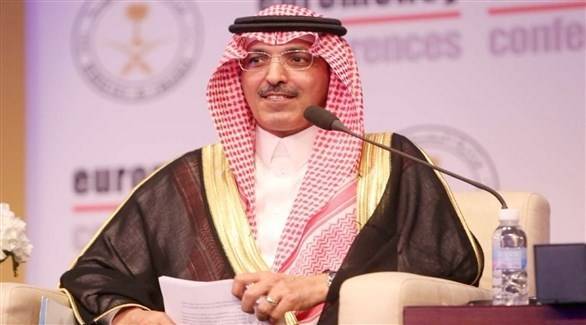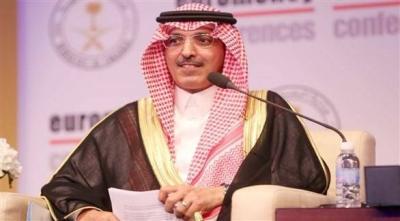In a special interview with Al Arabiya, Saudi Finance Minister Mohammed Al-Jadaan stated that the Kingdom's government aims, through the 2022 budget, not to increase the financial burden on citizens and the private sector. On Sunday evening, December 12, 2021, the Ministry of Finance forecasted in a preliminary budget statement for 2022 that revenues would reach 1.045 trillion riyals, an increase of 12.4% compared to what was expected to be achieved in 2021, with rising oil prices. It estimated that expenditures would amount to approximately 955 billion riyals during 2022, while continuing to improve spending efficiency.
The Saudi Ministry of Finance expected that the Kingdom would achieve a surplus starting from the next year, 2022, of about 90 billion riyals, compared to a deficit of 85 billion riyals in 2021, with estimates suggesting that public debt could reach 938 billion riyals in 2022.
The Finance Minister explained that the categorization of budget revenues had changed after the inclusion of Aramco, and a new methodology for the budget was followed that does not set future oil price expectations. Al-Jadaan said, "We do not expect dividends from the Public Investment Fund for the budget in the upcoming years, as the budget received exceptional distributions from the Fund in 2020, and these exceptional distributions did not recur in 2021."
Regarding the distribution of budget surpluses for the coming year, he stated, "In 2022, all surpluses will go to reserves, and later we will consider transfers to the Public Investment Fund and the National Development Fund, and there is currently no intention to transfer from reserves to the funds, as they have sufficient liquidity to support their projects."
He added, "We withdrew one trillion riyals from reserves in previous deficit years excluding borrowing, and we have a Public Debt Management Center that monitors public debt issuances of independent entities like the Public Investment Fund, which is required to coordinate with the center concerning its debt issuances, while borrowing by government companies is under the supervision of the Public Debt Management Office. We may take loans to finance some infrastructure projects, while the King Salman Park project is funded from the general budget."
Al-Jadaan noted ongoing coordination with credit rating agencies to ensure that the rating is not affected by the increase in public debt. Concerning privatization, the Saudi finance minister indicated that it is ongoing and will include sectors such as education, health, and sports.




